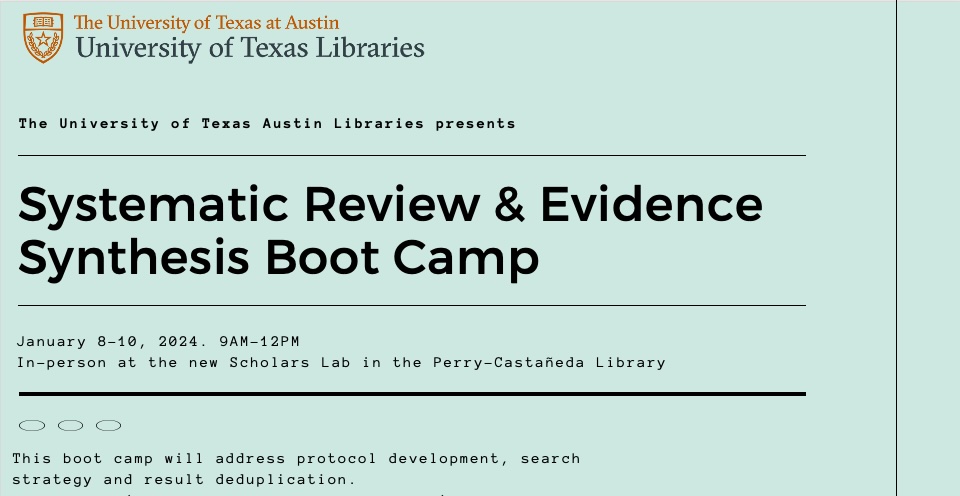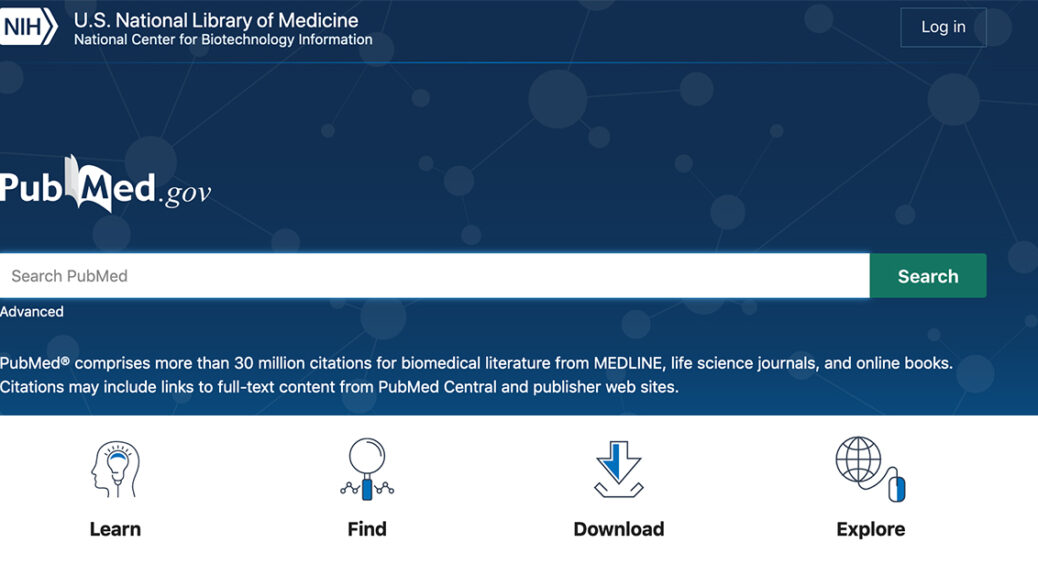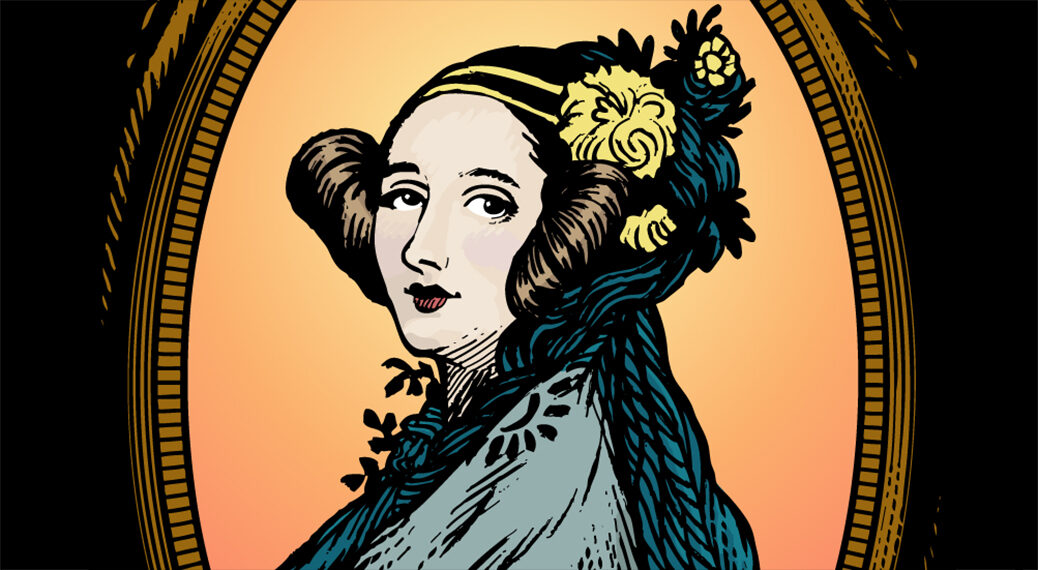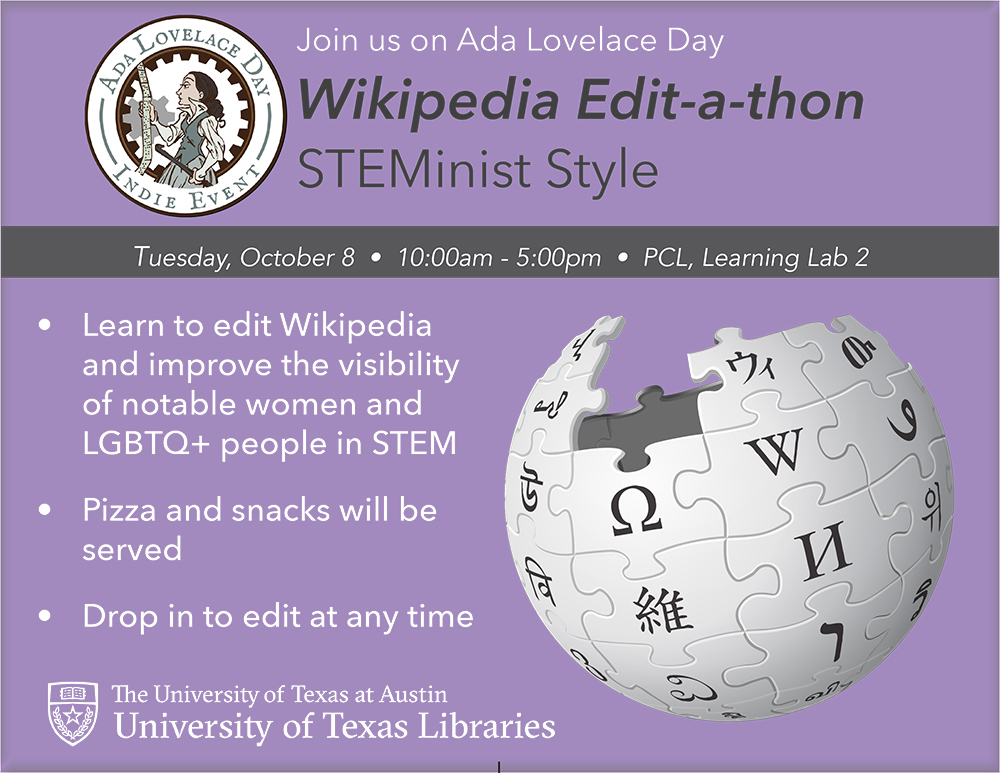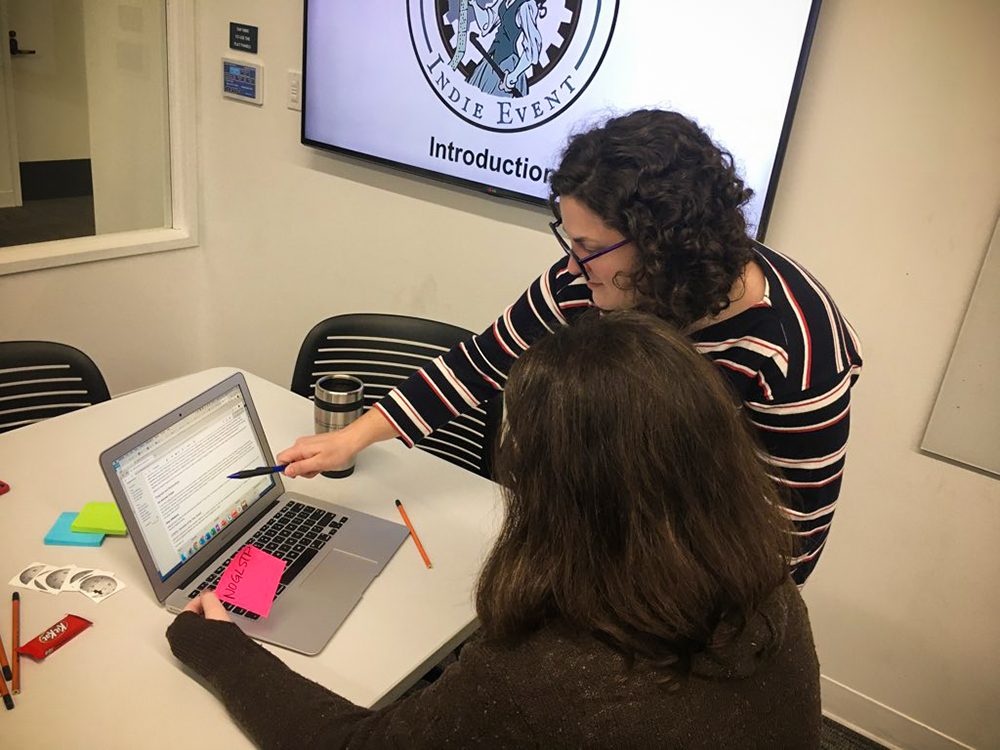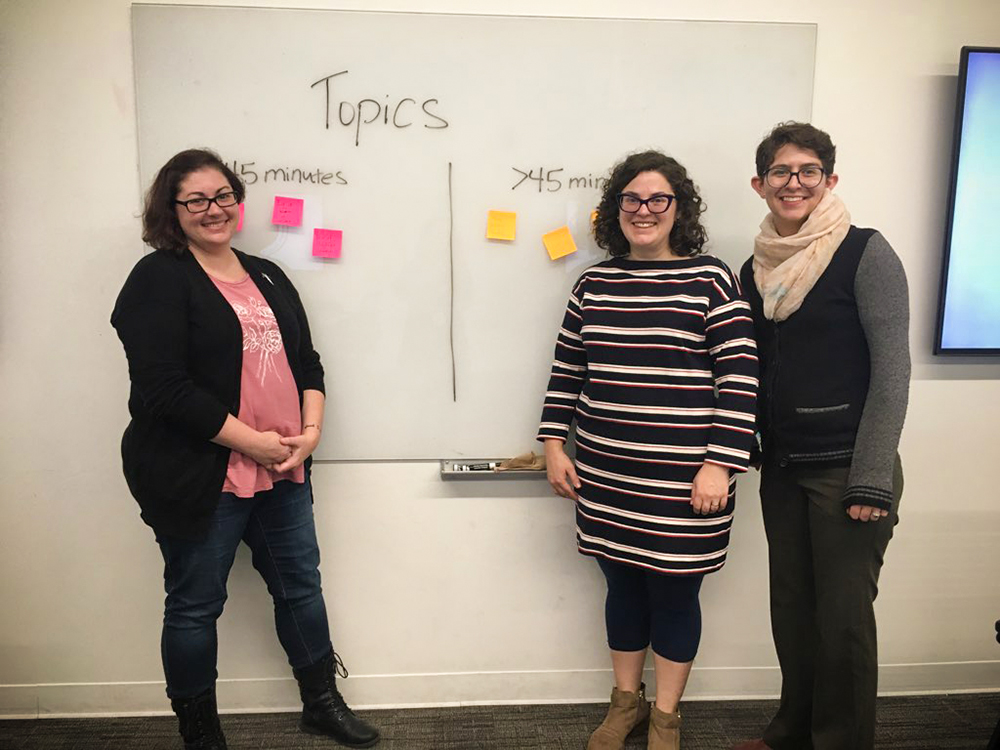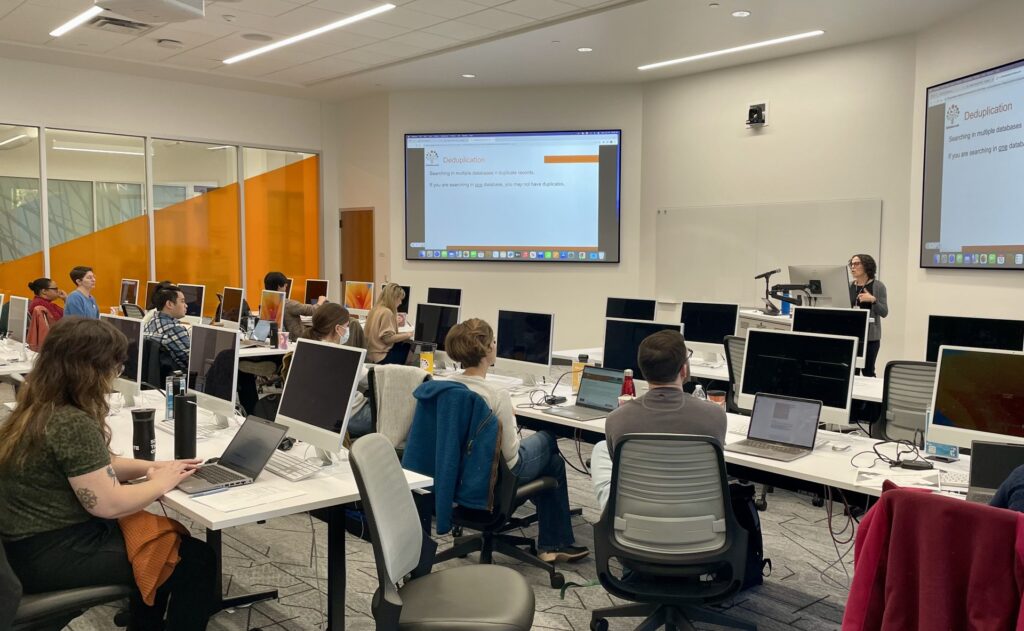
On a Monday morning before the semester started in January 2024, members of the Systematic Review Interest Group gathered to prepare for a multi-day event. The Systematic Review & Evidence Synthesis Boot Camp, to be precise, took place over the course of three days, and was designed as an educational series of short workshops describing best practices for conducting systematic reviews, from idea formation through content screening (with many steps in between). Content sections were interspersed with opportunities for one-on-one, customized consultation sessions with a librarian, for working through questions and creating actionable takeaways.
A systematic review starts with a very specific question and then reviews a variety of empirical sources of literature that offer a response to that very specific question.
Systematic reviews are the most common and best-known type of systematized evidence synthesis methodologies. Originating in the field of medicine, they have spread across other disciplines such as education, engineering, sociology, criminal justice, public health, environmental sciences, and beyond. A systematic review starts with a very specific question and then reviews a variety of empirical sources of literature that offer a response to that very specific question. Because this review type attempts to be highly thorough (or systematic) in finding sources to include in the review, librarian assistance is often sought. The support offered can take on multiple forms, from advising on database selection and helping with search strategy development to recommending and training on tools to ease the steps in the process. If the librarian’s schedule and bandwidth permit, they may take on a request for more intensive assistance with a review project and be a co-author on the final published review.
In the spring of 2021, the UT Libraries’ Systematic Review Interest Group offered a 6-part workshop series on evidence synthesis methodologies. Though the series offered thoughtful content that was well-received, discussions persisted about whether scholars were receiving adequate support, given the multiple weeks between sessions. We thought they may instead want to progress at a faster pace and need more individual time with librarians, so this more concentrated and intensive session was conceived. Teamwork was required to pilot the Boot Camp approach – with eight librarians working together to contribute content similar to what is on our shared library guide page, coordinate and present the prepared sessions, and provide the one-on-one breakout consultation sessions – in a “many hands makes light work” model.
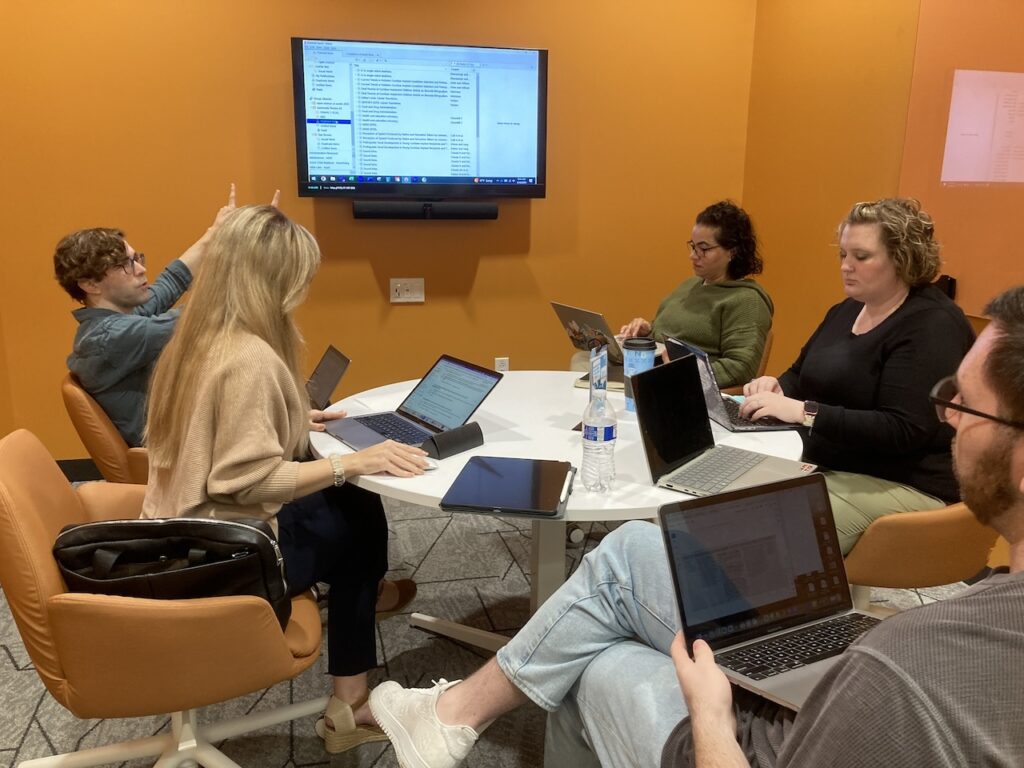
On that opening morning, Boot Camp participants and providers consumed a welcome breakfast of tacos and enjoyed coffee in the new PCL Scholars Lab. Jenifer Flaxbart, one of the Boot Camp’s sponsors and UT Libraries’ Assistant Director for Research Support and Digital Initiatives, provided an official welcome to both the Boot Camp and the newly introduced Scholars Lab. The Scholars Lab turned out to be a great space for the event. On each of the three days, librarians offered presentation sessions and then we broke out into individual work sessions for one-on-one support. The flexibility offered by the multiple, yet nearby, spaces in the Scholars’ Lab made the transitions seamless. In addition, the spaces supported back-and-forth communication without causing strain to hear or be heard.
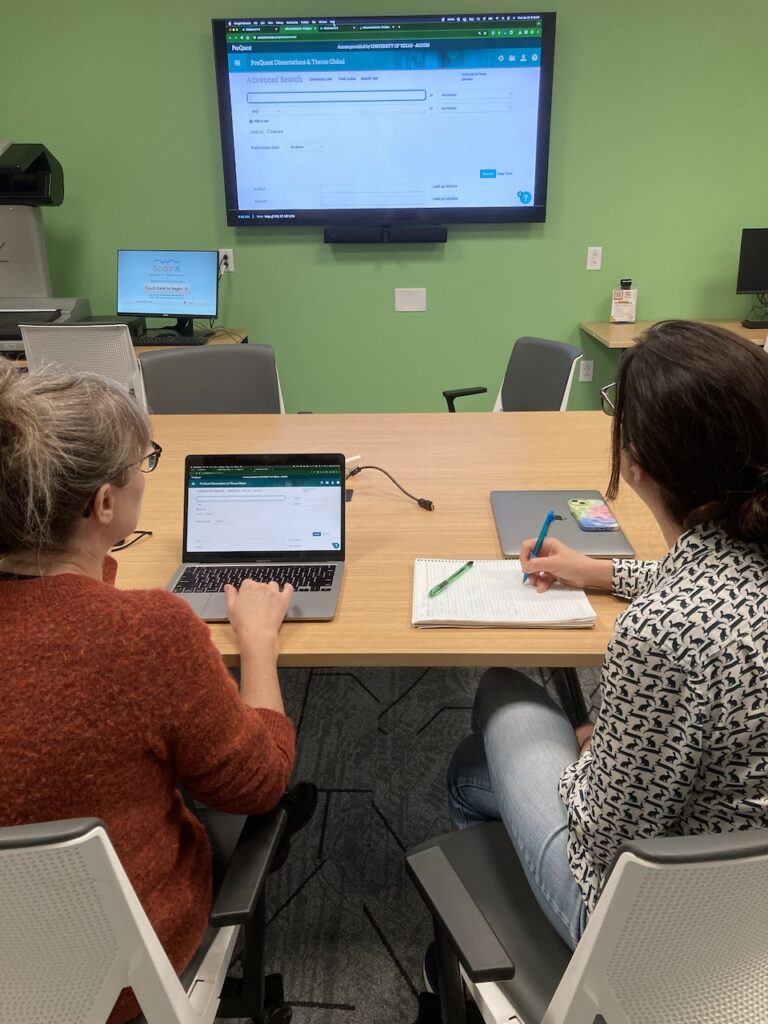
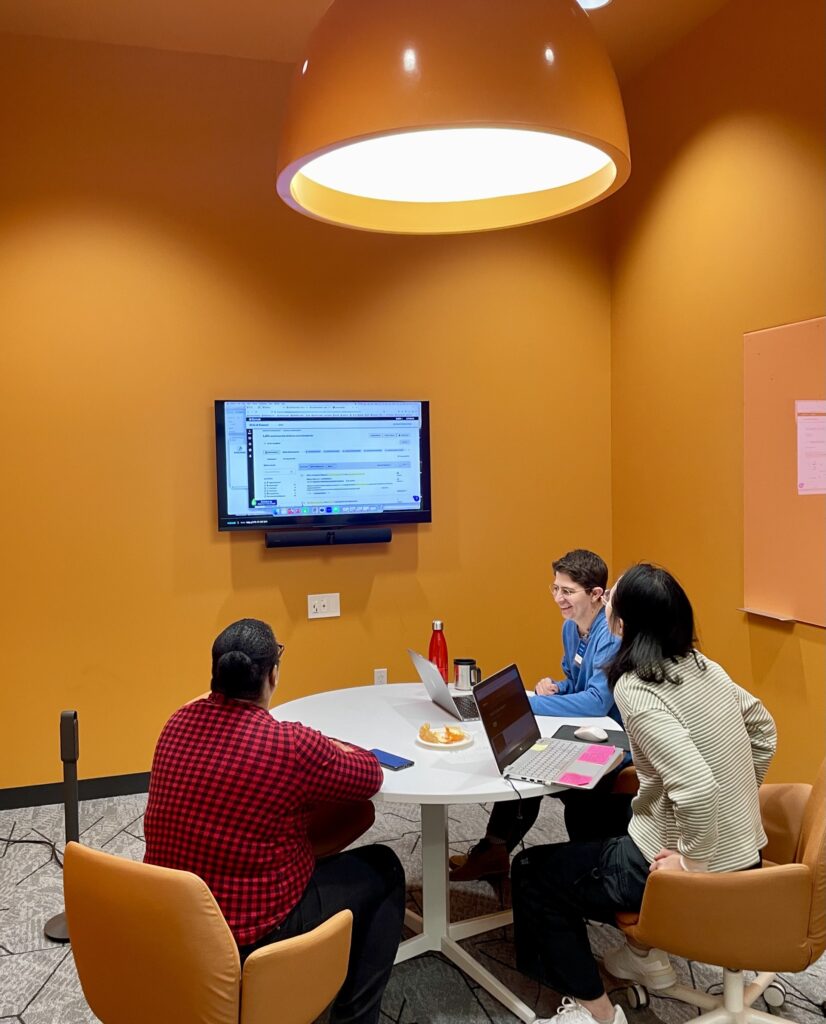
This intensive Boot Camp method of delivery presents a unique opportunity for both librarians and scholars. The support offered falls somewhere in between having a few librarian consultations with a research team and serving as a co-author on a project. At a large campus like UT Austin, it is not feasible for librarians to support every request received at the co-author level. We need to budget our time and yet we also want to offer our expertise to scholars wherever we can. This method allowed us to deliver three days worth of content and one-on-one support. It is yet another mechanism in our toolbox to help meet the growing demand for evidence syntheses here on the UT campus. In addition, it was a rare pleasure to collaborate in building this experience with colleagues and learn from one another in the process.
At the end of the three days the participants, hopefully not too overwhelmed with information, took a survey to inform possible future Boot Camp planning efforts. The coordinators were pleased to see positive responses on the survey and an increase in knowledge about the concepts covered. Just a few quotes are evidence of the positive reception:
- THANK YOU for this amazing learning opportunity
- Interaction with the amazing Librarians and their support [favorite part]
- The small group session is really helpful to establish the appropriate search strategy which is the one the most important steps to do systematic review. [favorite part]
- Learning about all of the tools available (e.g., searching, deduplication, and screening) which will make future literature reviews, including systematic and more general reviews much more efficient and comprehensive. [favorite part]
As illustrated through these comments, many participants gained the knowledge and confidence needed to go forward and conduct their planned review project. It will be exciting to follow these projects through to publication and track the impact made in future years by the results of the evidence synthesis collaborations resulting from the Boot Camp.

